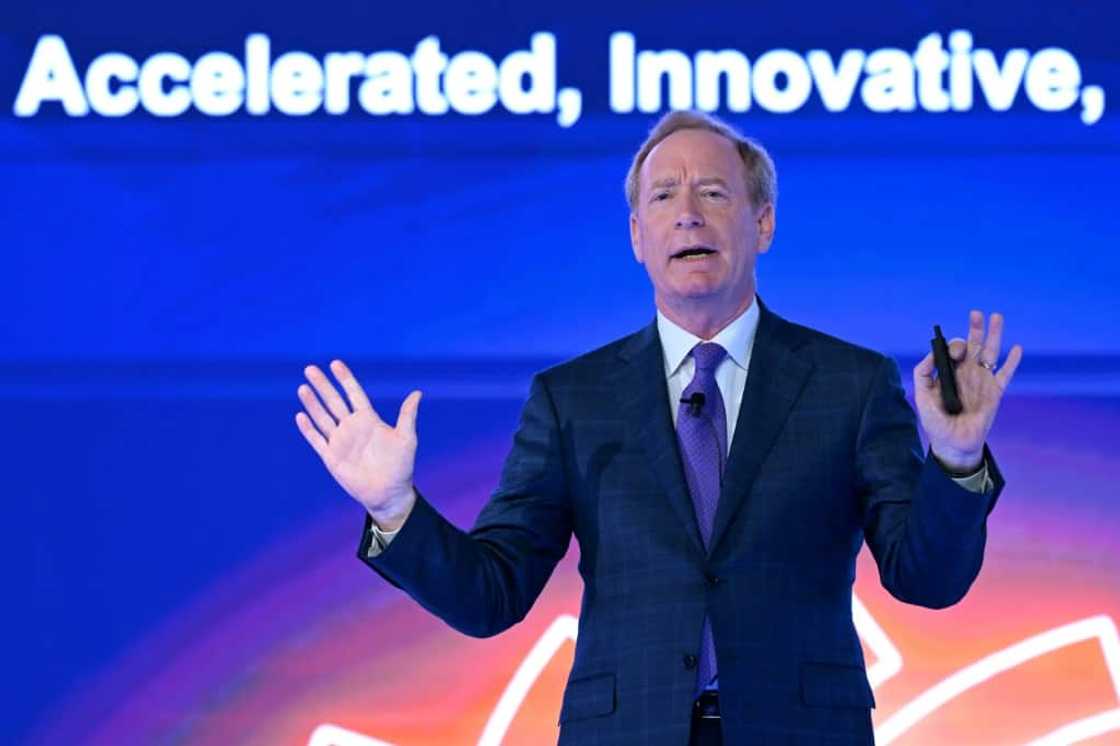AI risks repeating social media era's mistakes: Microsoft president

Source: AFP
PAY ATTENTION: Briefly News launched a YouTube channel Briefly TV. Subscribe now!
Breakneck development of artificial intelligence risked repeating mistakes made by the tech industry at the start of the social media era, Microsoft president Brad Smith told a business forum on Friday.
Rapid advancements in AI have stoked global alarm over the technology's potential for disinformation, misuse and upheaval of the labour market.
But Smith suggested these misgivings were not reflected by the developers of the potentially revolutionary technology, whose optimism reminded him of the early years of social media platforms.
Back then, the tech industry "became a little too euphoric about all the good things that social media would bring to the world -- and there have been many -- without thinking about the risks as well," he said.
"We need to be clear-eyed, we need to be excited about the opportunities, but thoughtful, perhaps even concerned, about the downside. And we need to construct the guardrails from the outset," he added.
The rise of AI has raised both excitement and concerns about its potential to improve or replace tasks done by humans.
PAY ATTENTION: Сheck out news that is picked exactly for YOU ➡️ click on “Recommended for you” and enjoy!
AI tools have shown in recent months the ability to generate essays, create realistic images, mimic voices of famous singers and even pass medical exams, among a slew of uses.
But there are also worries that chatbots could flood the internet with disinformation, that biased algorithms will churn out racist material or that AI-powered automation could lay waste to entire industries.
A United Nations report this week said AI was more likely to augment jobs than to destroy them, adding nonetheless that the tech would alter work intensity and the autonomy of workers.
It also said the effects of technology would vary greatly between professions and regions, with clerical workers facing the most exposure to changes and women more likely than men to see their jobs affected.
Smith said it was clear the public "want to be confident that this new technology will remain under human control".
Mastercard chief executive Michael Miebach said companies needed to build trust over use of the tech and take action to address issues such as AI bias.
But he also said he believed that the risks around AI were "not terribly new" and should not impede further development of the technology.
"Naturally regulation will be behind," he said. "But that shouldn't slow us down."
Both men were speaking in New Delhi alongside other world industry leaders at a meeting that is serving as a prelude to next month's G20 summit in the Indian capital.
PAY ATTENTION: Сheck out news that is picked exactly for YOU ➡️ click on “Recommended for you” and enjoy!
Source: AFP



